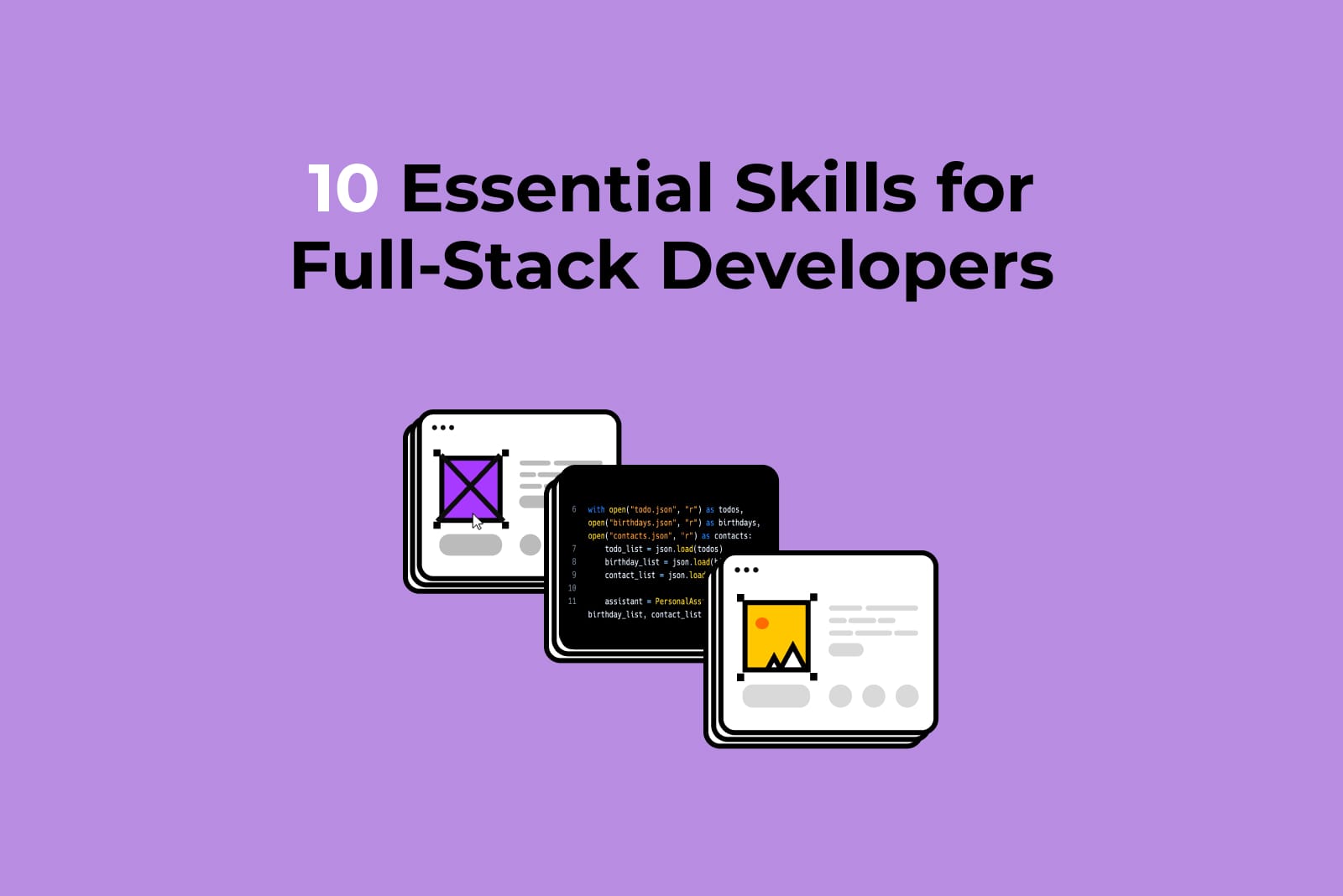10 Essential Skills Every Full Stack Developer Needs
 pallavi chauhan
pallavi chauhan
Full stack developers are versatile professionals who can handle both the front-end and back-end aspects of web development. This dual expertise demands a wide range of skills across multiple languages, frameworks, databases, and essential soft skills. Here, we’ll cover ten core skills every full stack developer should master to excel in this diverse and dynamic role.
HTML and CSS
HTML (HyperText Markup Language) and CSS (Cascading Style Sheets) are fundamental to web development. HTML structures the content, while CSS handles design and layout.
Why It’s Important: Proficiency in HTML and CSS allows developers to create well-organized, visually appealing web pages, ensuring they are accessible and user-friendly.
Key Areas to Focus On: Learn effective HTML structuring, CSS for styling, and responsive design principles to ensure websites look great across devices.
JavaScript
JavaScript is essential for adding interactivity to a website. It works alongside HTML and CSS to create dynamic user experiences.
Why It’s Important: JavaScript is a crucial part of modern web development, enabling developers to add interactive elements, validate input, and manipulate the DOM (Document Object Model).
Key Areas to Focus On: Get comfortable with ES6+ features, explore popular frameworks like React and Angular, and understand asynchronous programming with promises and async/await.
Back-End Programming Languages (e.g., Python, Ruby, PHP, Java)
Full stack developers must know at least one back-end language, such as Python, Ruby, PHP, or Java, to handle server-side functionality.
Why It’s Important: Back-end languages power the core logic, database interactions, and server-side processes that make applications functional.
Key Areas to Focus On: Choose one or two languages to master, learn to write clean, efficient code, and understand server-side scripting principles.
Databases and SQL
Databases are critical for storing, managing, and retrieving application data. Full stack developers should be skilled with SQL (relational) and NoSQL databases.
Why It’s Important: Every web application requires data storage, making it essential to understand databases and query optimization.
Key Areas to Focus On: Practice SQL for relational databases like MySQL and PostgreSQL, and learn about NoSQL options like MongoDB. Design schemas and optimize database queries for efficiency.
Version Control/Git
Version control systems like Git are essential for tracking and managing changes to code.
Why It’s Important: Version control is crucial for collaborative development, allowing developers to manage code updates, track bugs, and revert to previous versions.
Key Areas to Focus On: Learn Git basics like commit, push, pull, and merge, understand branching strategies, and become familiar with platforms like GitHub or GitLab.
APIs and RESTful Services
APIs (Application Programming Interfaces) and RESTful services enable different parts of an application, or multiple applications, to communicate effectively.
Why It’s Important: APIs are essential for integrating third-party services and enabling modular application design.
Key Areas to Focus On: Learn to create, test, and document APIs, understand REST principles, and use API tools like Postman or Swagger for testing.
Responsive Design and Basic UX/UI Principles
Full stack developers should know how to create designs that adapt to different screen sizes and offer a positive user experience.
Why It’s Important: Ensuring that applications look good and function well across devices is critical in a mobile-first world.
Key Areas to Focus On: Learn CSS frameworks like Bootstrap or Tailwind, understand UX principles, and consider accessibility standards to ensure a wide range of users can navigate the site easily.
Basic Knowledge of DevOps and Deployment
While full stack developers aren’t typically DevOps specialists, knowing how to deploy and manage applications is valuable.
Why It’s Important: Familiarity with DevOps concepts enables developers to deploy, monitor, and manage applications smoothly from development to production.
Key Areas to Focus On: Learn about cloud services like AWS, Azure, or Google Cloud, containerization with Docker, and Continuous Integration/Continuous Deployment (CI/CD) pipelines for automated deployment.
Testing and Debugging Skills
Testing and debugging are essential for ensuring code runs smoothly and offers a positive user experience without bugs or crashes.
Why It’s Important: Testing and debugging help catch errors early, reducing costly issues in production.
Key Areas to Focus On: Understand different testing types (unit, integration, end-to-end), use testing tools like Jest, Mocha, or Selenium, and practice debugging to quickly locate and resolve errors.
Soft Skills (Communication, Problem-Solving, Time Management)
Soft skills like communication, time management, and problem-solving are just as vital as technical knowledge for any full stack developer.
Why It’s Important: Full stack development often requires working with clients, designers, and other developers, making clear communication and teamwork essential.
Key Areas to Focus On: Practice explaining technical concepts to non-technical team members, work on collaboration, and use time management techniques to stay organized and meet deadlines.
Final Thoughts
Becoming a successful full stack developer means mastering a broad set of technical and soft skills, from HTML and JavaScript to deployment practices and effective communication. To build this essential skill set, enrolling in a top full stack development course in Noida, Delhi, Gurugram, Mumbai, Navi Mumbai, Thane, and other cities across India can be incredibly beneficial. These courses provide comprehensive training that covers all facets of full stack development, offering hands-on projects and guidance from experienced instructors.
By developing these ten essential skills through structured learning and practical application, you’ll be well-prepared to tackle the complex challenges of full stack development and thrive in your career.
Subscribe to my newsletter
Read articles from pallavi chauhan directly inside your inbox. Subscribe to the newsletter, and don't miss out.
Written by
